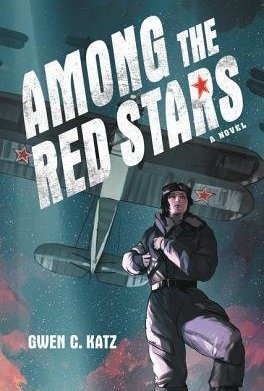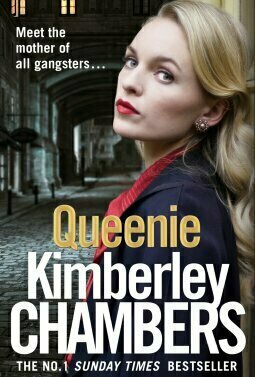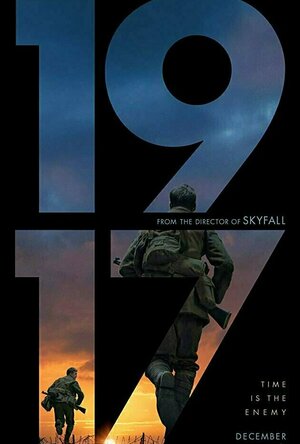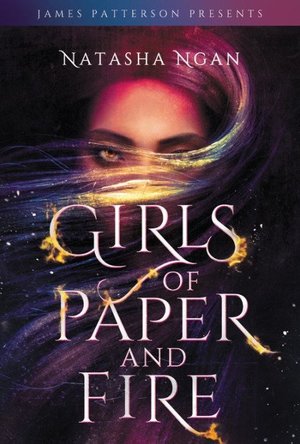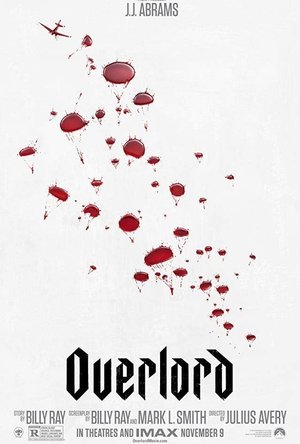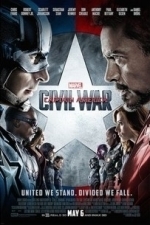Search
Search results
Heather Cranmer (2721 KP) rated Among the Red Stars in Books
Dec 21, 2018
The Plot (2 more)
The History
The Characters
A lot of Russian names make it hard to keep up with who's who (1 more)
Lack of mention of parents
A Great Historical Read!
When I was offered the chance to review Among the Red Stars by Gwen C. Katz, I jumped at the chance. After reading the great reviews, I knew it was going to be a great book. Luckily, I was not disappointed.
I though the plot and world building were excellent! The story for Among the Red Stars is mostly told through letters written by Valka, the main character, and her childhood friend, Pasha. Set in Russia during World War II, Pasha was drafted and had no choice but to join, and Valka voluntarily joined because she had been wanting to be a pilot since she was young. The all female bomber regiment isn't taken seriously at first since they are all young and female, but soon enough, it because apparent that these female pilots are the real deal and just as good as their male counterparts. Among the Red Stars is also based in some fact too which made the book that much more interesting. My emotions were all over the place reading this book. I kept on hoping the outcome of the story would be a good one. Among the Red Stars answered all the questions I had, and I would suggest reading the Author's Note at the end of the book because it will give you more insight into the all female Russian bomber regiment. I found it very interesting. The only thing that bothered me was that Valka's parents weren't really mentioned throughout the book. I would have thought that Valka's parents would have written to their daughter during the war. If they didn't want to, it would have been nice to have an explanation as to why they didn't want to write to their daughter. I just found it a bit strange that Valka's parents weren't mentioned at all during the book except for briefly towards the end.
The characters were written very well in Among the Red Stars. It was interesting to learn that many of the characters mentioned in Among the Red Stars were based on actual people who served in World War II. As I've said before, a lot of the story is based on fact which made this book that much more enjoyable. I loved seeing Pasha and Valka grow throughout their letters. I was always hoping they'd be reunited soon because it was obvious how much they really cared about each other. I also loved the relationship between Valka and her cousin Iskra. It was refreshing to read about the love between them. I admired Galya's and Lilya's spirit throughout the war, and I loved how awesome Vera and Tanya were. All the females in Among the Red Stars were amazing, and I admired each and every one of them. I loved the camaraderie between all the girls. I will admit that sometimes it was hard to keep up with who was who during the book due to the Russian names, but I still thoroughly enjoyed every character. If you read the Author's Note at the end of the book, you can learn more about each character that was actually a real person. I loved that Gwen C. Katz added all that information.
The pacing for Among the Red Stars grabs you by the hand and never lets go! Never once did I grow bored of the story. The story never got too fast paced for me where I was confused with what was happening. The pacing was fantastic!
Trigger warnings for Among the Red Stars include violence, death, injuries, war, and sexism.
All in all, Among the Red Stars was a fantastic, thrilling read. I never wanted to put it down. This book had everything from a great group of characters to a fantastic plot. I would definitely recommend Among the Red Stars by Gwen C. Katz to everyone aged 14+. It's such an interesting book as well as an interesting way to learn about a piece of important history.
--
(A special thank you to the author for providing me with a paperback of Among the Red Stars in exchange for an honest and unbiased review.)
I though the plot and world building were excellent! The story for Among the Red Stars is mostly told through letters written by Valka, the main character, and her childhood friend, Pasha. Set in Russia during World War II, Pasha was drafted and had no choice but to join, and Valka voluntarily joined because she had been wanting to be a pilot since she was young. The all female bomber regiment isn't taken seriously at first since they are all young and female, but soon enough, it because apparent that these female pilots are the real deal and just as good as their male counterparts. Among the Red Stars is also based in some fact too which made the book that much more interesting. My emotions were all over the place reading this book. I kept on hoping the outcome of the story would be a good one. Among the Red Stars answered all the questions I had, and I would suggest reading the Author's Note at the end of the book because it will give you more insight into the all female Russian bomber regiment. I found it very interesting. The only thing that bothered me was that Valka's parents weren't really mentioned throughout the book. I would have thought that Valka's parents would have written to their daughter during the war. If they didn't want to, it would have been nice to have an explanation as to why they didn't want to write to their daughter. I just found it a bit strange that Valka's parents weren't mentioned at all during the book except for briefly towards the end.
The characters were written very well in Among the Red Stars. It was interesting to learn that many of the characters mentioned in Among the Red Stars were based on actual people who served in World War II. As I've said before, a lot of the story is based on fact which made this book that much more enjoyable. I loved seeing Pasha and Valka grow throughout their letters. I was always hoping they'd be reunited soon because it was obvious how much they really cared about each other. I also loved the relationship between Valka and her cousin Iskra. It was refreshing to read about the love between them. I admired Galya's and Lilya's spirit throughout the war, and I loved how awesome Vera and Tanya were. All the females in Among the Red Stars were amazing, and I admired each and every one of them. I loved the camaraderie between all the girls. I will admit that sometimes it was hard to keep up with who was who during the book due to the Russian names, but I still thoroughly enjoyed every character. If you read the Author's Note at the end of the book, you can learn more about each character that was actually a real person. I loved that Gwen C. Katz added all that information.
The pacing for Among the Red Stars grabs you by the hand and never lets go! Never once did I grow bored of the story. The story never got too fast paced for me where I was confused with what was happening. The pacing was fantastic!
Trigger warnings for Among the Red Stars include violence, death, injuries, war, and sexism.
All in all, Among the Red Stars was a fantastic, thrilling read. I never wanted to put it down. This book had everything from a great group of characters to a fantastic plot. I would definitely recommend Among the Red Stars by Gwen C. Katz to everyone aged 14+. It's such an interesting book as well as an interesting way to learn about a piece of important history.
--
(A special thank you to the author for providing me with a paperback of Among the Red Stars in exchange for an honest and unbiased review.)
Gritty, engrossing and thoroughly entertaining
Kimberley Chambers isn't known as the "Queen of Gangland Crime Fiction" for nothing and here we have yet another masterpiece of story-telling ... the saga that is "Queenie".
This book tells the story of Queenie from her life as a young girl during World War II right up to the early 60's and what a life she leads! She is one heck of a character; one minute you absolutely adore her, the next she disappoints you, then she'll surprise you and then shock ... I felt like I was on a rollercoaster of emotions from start to finish and I still don't know how I feel about her even now!
Queenie is not the only character however, this book is absolutely brimmed to the rim with fantastic personalities from the bit players to the main stars; some you'll love and some ... not so much. The setting in the east end of London felt perfect but it could equally have worked in any inner-city borough. For those of us who weren't around during the time span of this book, I felt it captured them well and it felt authentic and believable to me.
"Queenie" is a gritty, engrossing and thoroughly entertaining read and one I would definitely recommend even if you haven't read any of the other books in the "Butler" series; this can easily be read as a standalone as it is the prequel to the first book in the series "The Trap."
Thanks to HarperCollins UK, HarperFiction via NetGalley for my copy in return for an honest and unbiased review.
This book tells the story of Queenie from her life as a young girl during World War II right up to the early 60's and what a life she leads! She is one heck of a character; one minute you absolutely adore her, the next she disappoints you, then she'll surprise you and then shock ... I felt like I was on a rollercoaster of emotions from start to finish and I still don't know how I feel about her even now!
Queenie is not the only character however, this book is absolutely brimmed to the rim with fantastic personalities from the bit players to the main stars; some you'll love and some ... not so much. The setting in the east end of London felt perfect but it could equally have worked in any inner-city borough. For those of us who weren't around during the time span of this book, I felt it captured them well and it felt authentic and believable to me.
"Queenie" is a gritty, engrossing and thoroughly entertaining read and one I would definitely recommend even if you haven't read any of the other books in the "Butler" series; this can easily be read as a standalone as it is the prequel to the first book in the series "The Trap."
Thanks to HarperCollins UK, HarperFiction via NetGalley for my copy in return for an honest and unbiased review.
Phillip McSween (751 KP) rated 1917 (2020) in Movies
Oct 25, 2020
Full Ride of Intensity
Set during WWI, two British soldiers are tasked with getting an important message across enemy territory. 1917 is a wall-to-wall thrill ride done in a one-shot fashion that is amazingly unforgettable.
Acting: 10
George Mackay is brilliant as Lance Corporal Schofield. He takes you through the entirety of this journey as a man reluctant to accept the fate that’s befallen him. His showcase of fear in the face of danger is really what drives the intensity of this movie.
Beginning: 9
Not the best first ten minutes of action, but a decent setup nonetheless. I was immediately drawn into this wartorn world and was curious to see what would happen next. Not perfect, but it’s definitely full speed ahead from here.
Characters: 10
Cinematography/Visuals: 10
Conflict: 10
Entertainment Value: 10
Memorability: 10
Pace: 10
There is such a quiet intensity here that drives the pace of the story. Even when shots aren’t being fired, I couldn’t help but be on the edge of my seat. With danger around every single turn, the pace is phenomenal.
Plot: 10
The story is straightforward with a clear objective. Where the plot wins is with a few unexpected turns that throw you off course. Not to mention to be able to do all of this in a set of one shots is remarkable.
Resolution: 10
Overall: 99
1917 touts beautiful imagery seeped in a mountain of dread. There is a scene where the protagonists are wading through heaps of dead bodies that really sets the stage for how harrowing the film is throughout. As war movies go, this one is definitely the most unique.
Acting: 10
George Mackay is brilliant as Lance Corporal Schofield. He takes you through the entirety of this journey as a man reluctant to accept the fate that’s befallen him. His showcase of fear in the face of danger is really what drives the intensity of this movie.
Beginning: 9
Not the best first ten minutes of action, but a decent setup nonetheless. I was immediately drawn into this wartorn world and was curious to see what would happen next. Not perfect, but it’s definitely full speed ahead from here.
Characters: 10
Cinematography/Visuals: 10
Conflict: 10
Entertainment Value: 10
Memorability: 10
Pace: 10
There is such a quiet intensity here that drives the pace of the story. Even when shots aren’t being fired, I couldn’t help but be on the edge of my seat. With danger around every single turn, the pace is phenomenal.
Plot: 10
The story is straightforward with a clear objective. Where the plot wins is with a few unexpected turns that throw you off course. Not to mention to be able to do all of this in a set of one shots is remarkable.
Resolution: 10
Overall: 99
1917 touts beautiful imagery seeped in a mountain of dread. There is a scene where the protagonists are wading through heaps of dead bodies that really sets the stage for how harrowing the film is throughout. As war movies go, this one is definitely the most unique.
Micky Barnard (542 KP) rated Girls of Paper and Fire in Books
Jan 26, 2019
A fresh YA fantasy
Natasha Ngan created a fascinating world in GIRLS OF PAPER AND FIRE, it was complex and yet not difficult to grasp a hold of. It is a world of castes, paper, moon, steel and demon, with the Demon King at the head. Lei is paper caste, the most lowly of the castes but there is something special about her, her eyes. She is kidnapped and brought to be one of the honoured paper girls that the king gets to choose and bed for a year as he wishes. A grim life for a 17 year old.
This is a tale of politics, war, oppression, slavery and fear. Lei embarks in a journey from fearful new paper girl to a young woman who has a streak of fearless bravery, almost foolish at times. The land of the Demon King was colourful and diverse, the descriptions were excellent and my mind supplied all the mental pictures that I needed. The characters were a range of sweet, fiery, plain mean and evil.
The diversity elements of this book were fabulous. I welcomed the relationship between Lei and Wren and yet sometimes I struggled to connect with their coupling because the chemistry lacked a little something. This being a first in the series, I am hoping for more of a a build in the relationship between these two. The sisterly relationships of the paper girls were almost like a high school corridor with the resident mean girl, Blue. In addition, I loved to hate the Demon King, he really was vile.
This had both a sense of completion and an “oh heck, what” moment at the end. I am definitely looking forward to catching up with these characters again and finding out what happens in this world.
I voluntarily read an early copy of this book.
This is a tale of politics, war, oppression, slavery and fear. Lei embarks in a journey from fearful new paper girl to a young woman who has a streak of fearless bravery, almost foolish at times. The land of the Demon King was colourful and diverse, the descriptions were excellent and my mind supplied all the mental pictures that I needed. The characters were a range of sweet, fiery, plain mean and evil.
The diversity elements of this book were fabulous. I welcomed the relationship between Lei and Wren and yet sometimes I struggled to connect with their coupling because the chemistry lacked a little something. This being a first in the series, I am hoping for more of a a build in the relationship between these two. The sisterly relationships of the paper girls were almost like a high school corridor with the resident mean girl, Blue. In addition, I loved to hate the Demon King, he really was vile.
This had both a sense of completion and an “oh heck, what” moment at the end. I am definitely looking forward to catching up with these characters again and finding out what happens in this world.
I voluntarily read an early copy of this book.
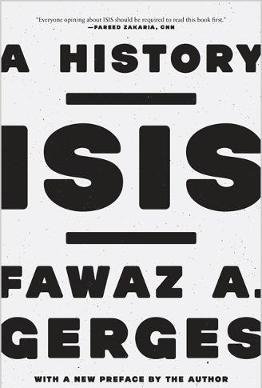
ISIS: A History
Book
The Islamic State has stunned the world with its savagery, destructiveness, and military and...
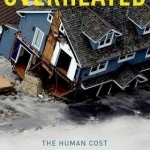
Overheated: The Human Cost of Climate Change
Book
Deniers of climate change sometimes quip that claims about global warming are more about political...
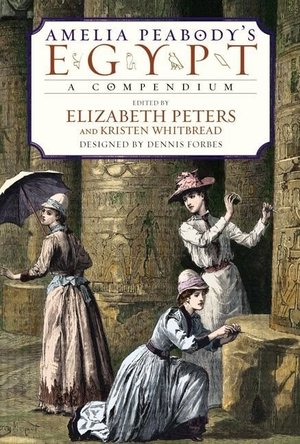
Amelia Peabody's Egypt: A Compendium
Elizabeth Peters and Kristen Whitbread
Book
The Egypt that so enticed and enchanted intrepid archaeologist-sleuth Amelia Peabody in the late...
Gareth von Kallenbach (980 KP) rated Overlord (2018) in Movies
Jul 2, 2019
June 6, 1944 is the day known around the world as D-Day. This historic day marks the massive invasion of France by the allied forces in an effort to regain the country from the hands of Germany and push back the mighty German war machine all the way to Berlin. There have been many movies, books, and even videogames about the invasion over the years, so even the biggest war buffs might be wondering…really, they made yet another movie about D-Day? Well, the movie Overlord is quite a bit different from anything we have even seen previously. This movie is still about Operation Overlord but does not focus on the amphibious assault and instead shows us the missions leading up to it. Still not unique enough for you? Well, in Overlord we have all the battles, weaponry and Nazis of an excellent war film but in true J.J. Abrams fashion we now also have ZOMBIES!
Overlord focuses on a small unit tasked to take out a radio tower atop a church in a small village in France. The unit led by Corporal Ford (Wyatt Russell) and comprised of fresh out of paratrooper training Privates Boyce (Jovan Adepo), Rosenfeld (Dominic Applewhite) and Tibbet (John Magaro) are the only survivors of the doomed mission, but understand that if they do not complete it, then the allied invasion will be without crucial air support. During their trek to the church they meet a young French woman from the village named Chloe (Mathilde Ollivier) who offers to accompany them and assist in taking out the radio tower.
When the ragtag team reach the village, it immediately becomes apparent that everything is not as it should be. They go to Chloe’s house to formulate their plan and are greeted by howling and grunting coming from a closed door down the hallway. Chloe states that her aunt also lives in the house and is very “sick” after being taken to the church by a German soldier. At the same time, through a series of unfortunate events, Private Boyce discovers a brutal laboratory where other villagers are also being made “sick”.
For those who have seen the preview of Overlord and expect it to be war-based horror movie may be a little disappointed. While there certainly are horrific events, and plenty of scenes fighting the undead, Overlord is much more about the atrocities that the Nazi regime inflicted on innocents in an effort to purse the 1000-year-old Reich. J.J. Abrams spins a tale about how a small group of dedicated soldiers can pull out the impossible, even when there are hordes of Nazi soldiers and undead monsters standing in their way and does this in a spectacular and very believable way. The movie seems far more realistic than it should considering we are talking about zombie soldiers, but the events unfold as if they could actually happen. The movie is less The Walking Dead and more Saving Private Ryan, focusing not so much on the undead creatures themselves, but more the experimentation and mad-scientist efforts to create the ultimate super soldier. The story was outstanding and how they depicted everything from the soldiers to the zombies was top notch.
The movie is beautifully shot, standing tall next to other war epics such as Saving Private Ryan or Dunkirk. Even though the main plot of the film isn’t the invasion itself, it goes to astonishing detail to show how massive the invasion truly was. The opening scene is both epic and terrifying and the horrors of war are explored throughout. The acting was also superb, leading you to immediately care about the team and root for their success in the mission.
If it is not already clear, I absolutely loved this movie! They did a masterful job of blending the war/horror genre in such a way, that it never overly feels like one versus the other. It’s an action packed, edge of your seat thriller, with just enough jump scares included to remind you that it is billed as a horror movie. Overlord is a very unique take on an unfortunate time in history and it is one of the best movies I’ve seen in 2018.
Overlord focuses on a small unit tasked to take out a radio tower atop a church in a small village in France. The unit led by Corporal Ford (Wyatt Russell) and comprised of fresh out of paratrooper training Privates Boyce (Jovan Adepo), Rosenfeld (Dominic Applewhite) and Tibbet (John Magaro) are the only survivors of the doomed mission, but understand that if they do not complete it, then the allied invasion will be without crucial air support. During their trek to the church they meet a young French woman from the village named Chloe (Mathilde Ollivier) who offers to accompany them and assist in taking out the radio tower.
When the ragtag team reach the village, it immediately becomes apparent that everything is not as it should be. They go to Chloe’s house to formulate their plan and are greeted by howling and grunting coming from a closed door down the hallway. Chloe states that her aunt also lives in the house and is very “sick” after being taken to the church by a German soldier. At the same time, through a series of unfortunate events, Private Boyce discovers a brutal laboratory where other villagers are also being made “sick”.
For those who have seen the preview of Overlord and expect it to be war-based horror movie may be a little disappointed. While there certainly are horrific events, and plenty of scenes fighting the undead, Overlord is much more about the atrocities that the Nazi regime inflicted on innocents in an effort to purse the 1000-year-old Reich. J.J. Abrams spins a tale about how a small group of dedicated soldiers can pull out the impossible, even when there are hordes of Nazi soldiers and undead monsters standing in their way and does this in a spectacular and very believable way. The movie seems far more realistic than it should considering we are talking about zombie soldiers, but the events unfold as if they could actually happen. The movie is less The Walking Dead and more Saving Private Ryan, focusing not so much on the undead creatures themselves, but more the experimentation and mad-scientist efforts to create the ultimate super soldier. The story was outstanding and how they depicted everything from the soldiers to the zombies was top notch.
The movie is beautifully shot, standing tall next to other war epics such as Saving Private Ryan or Dunkirk. Even though the main plot of the film isn’t the invasion itself, it goes to astonishing detail to show how massive the invasion truly was. The opening scene is both epic and terrifying and the horrors of war are explored throughout. The acting was also superb, leading you to immediately care about the team and root for their success in the mission.
If it is not already clear, I absolutely loved this movie! They did a masterful job of blending the war/horror genre in such a way, that it never overly feels like one versus the other. It’s an action packed, edge of your seat thriller, with just enough jump scares included to remind you that it is billed as a horror movie. Overlord is a very unique take on an unfortunate time in history and it is one of the best movies I’ve seen in 2018.
Movie Metropolis (309 KP) rated Captain America: Civil War (2016) in Movies
Jun 10, 2019
Mini Avengers, Assemble
Is anyone else getting bored of superhero films? Nope? Just me then. We’re not even halfway through 2016 and there have been three of them. In February, there was Deadpool, a film that despite all the odds, turned out to be smashing – despite its generic finale.
Then, DC tried to compete with Marvel in March with Batman v Superman: Dawn of Justice. It was fine, if far too long and lacking in any real drama. Now, Marvel is back with Captain America: Civil War. But can it break the superhero tedium that has started to settle in?
Steve Rogers (Chris Evans) is back and he is not happy. The titular hero, and the rest of our beloved Avengers clan, are asked to sign up to a UN treaty, designed to reign in their unsupervised power after a dramatic and deadly battle against terrorists in Nigeria. It turns out the Avengers lost the PR war and countries across the globe want blood – well them to back off a little at least.
Most of the fan favourites return in Civil War, with Robert Downey Jr proving once again why he was cast as Tony Stark/Iron Man all those years ago. He is a commanding presence and brings to the table some of the best one-liners outside a fully-fledged Iron Man film.
Elsewhere, Scarlett Johansson (Black Widow), Jeremy Renner (Hawkeye), Elizabeth Olsen (Scarlet Witch) and Paul Bettany (Vision) all return and despite the increasing number of characters all make their presence felt throughout the course of the film – something Avengers: Age of Ultron failed to do.
However, the film belongs to the characters that join the film and the Marvel Universe. Paul Rudd’s Ant-Man makes a truly exceptional appearance and features in Civil War’s most memorable scene – a brilliantly choreographed battle between two sides in a deserted airport.
And, the long-awaited “homecoming” of Spider-Man to the MCU is thankfully worth the wait. He’s been teased in the trailers and I’m pleased to say his screen-time is far greater than anyone could have imagined. Young Tom Holland’s portrayal of Peter Parker may need some time to settle in, we have a Spider-Man reboot to look forward to in 2018, but he makes a cracking first impression.
So, with all those characters it’s fair to say that Civil War should be renamed “Mini Avengers Assemble” as there’s far more at stake here than a simple Captain America movie. Directors Joe and Anthony Russo have created the film that Age of Ultron should have been and it’s a slight disservice to their incredible work that the film isn’t labelled as a full Avengers feature, despite the lack of Thor and Hulk.
The action is beautifully filmed and the locations are fabulous. From Africa to America and from Germany to London, nearly every inch of the world is touched upon in some way – yet it doesn’t feel disjointed.
But what makes Civil War stand out from all the rest is its human side. This isn’t a superhero movie that ends in a climactic battle against a faceless army, it explores the human impact of our characters’ actions and the emotion radiates from its heart.
Yes, it’s 20 minutes too long but apart from that, I can’t think of a bad word to say. It has reinvigorated a genre that was starting to turn a little stale. Bringing together a set of characters that against all the odds gel together so well makes it feel as fresh as Iron Man did way back in 2008.
If this is the magic the Russo brothers can work at Marvel, Avengers: Infinity War should be something truly special indeed. X-Men: Apocalypse, you have your work cut out.
Oh, and wait right up until the end credits for something very special indeed.
https://moviemetropolis.net/2016/05/01/mini-avengers-assemble-captain-america-civil-war-review/
Then, DC tried to compete with Marvel in March with Batman v Superman: Dawn of Justice. It was fine, if far too long and lacking in any real drama. Now, Marvel is back with Captain America: Civil War. But can it break the superhero tedium that has started to settle in?
Steve Rogers (Chris Evans) is back and he is not happy. The titular hero, and the rest of our beloved Avengers clan, are asked to sign up to a UN treaty, designed to reign in their unsupervised power after a dramatic and deadly battle against terrorists in Nigeria. It turns out the Avengers lost the PR war and countries across the globe want blood – well them to back off a little at least.
Most of the fan favourites return in Civil War, with Robert Downey Jr proving once again why he was cast as Tony Stark/Iron Man all those years ago. He is a commanding presence and brings to the table some of the best one-liners outside a fully-fledged Iron Man film.
Elsewhere, Scarlett Johansson (Black Widow), Jeremy Renner (Hawkeye), Elizabeth Olsen (Scarlet Witch) and Paul Bettany (Vision) all return and despite the increasing number of characters all make their presence felt throughout the course of the film – something Avengers: Age of Ultron failed to do.
However, the film belongs to the characters that join the film and the Marvel Universe. Paul Rudd’s Ant-Man makes a truly exceptional appearance and features in Civil War’s most memorable scene – a brilliantly choreographed battle between two sides in a deserted airport.
And, the long-awaited “homecoming” of Spider-Man to the MCU is thankfully worth the wait. He’s been teased in the trailers and I’m pleased to say his screen-time is far greater than anyone could have imagined. Young Tom Holland’s portrayal of Peter Parker may need some time to settle in, we have a Spider-Man reboot to look forward to in 2018, but he makes a cracking first impression.
So, with all those characters it’s fair to say that Civil War should be renamed “Mini Avengers Assemble” as there’s far more at stake here than a simple Captain America movie. Directors Joe and Anthony Russo have created the film that Age of Ultron should have been and it’s a slight disservice to their incredible work that the film isn’t labelled as a full Avengers feature, despite the lack of Thor and Hulk.
The action is beautifully filmed and the locations are fabulous. From Africa to America and from Germany to London, nearly every inch of the world is touched upon in some way – yet it doesn’t feel disjointed.
But what makes Civil War stand out from all the rest is its human side. This isn’t a superhero movie that ends in a climactic battle against a faceless army, it explores the human impact of our characters’ actions and the emotion radiates from its heart.
Yes, it’s 20 minutes too long but apart from that, I can’t think of a bad word to say. It has reinvigorated a genre that was starting to turn a little stale. Bringing together a set of characters that against all the odds gel together so well makes it feel as fresh as Iron Man did way back in 2008.
If this is the magic the Russo brothers can work at Marvel, Avengers: Infinity War should be something truly special indeed. X-Men: Apocalypse, you have your work cut out.
Oh, and wait right up until the end credits for something very special indeed.
https://moviemetropolis.net/2016/05/01/mini-avengers-assemble-captain-america-civil-war-review/
JT (287 KP) rated 1917 (2020) in Movies
Mar 3, 2020
Brilliant cinematography (2 more)
Great score
Fantastic central characters
A stunning film which hits hard both physically and emotionally
particular emphasis on cinematography. The World War I film is made to look like one continuous shot by director Sam Mendes whose one-shot opening of Spectre gave us a taste of things to come.
The film swept awards season with the film winning Best Drama Motion Picture at the Golden Globes, not to mention cleaning up at the BAFTAs. This was a strong indication that Mendes might have a hand on a couple of Oscars.
1917 tells the story of two Lance Corporals, Blake (Dean-Charles Chapman) and Schofield (George MacKay) who are tasked with hand-delivering a message to another battalion who are inadvertently walking into a trap – Blake’s brother among them. If they fail then 1,600 men will lose their lives.
Blake and Schofield have been through a lot. When we first meet them they are relaxing beneath a tree, taking a break trying to enjoy the peaceful surroundings.
Without so much as a thought the pair salute General Erinmore (Colin Firth) and start the first part of their harrowing journey crossing no man’s land. The film is gripping in every sense of the word and you feel as if you are making the treacherous journey with them.
The scenery is devastatingly realistic, particularly the trip across no man’s land where charred bodies are buried deep in bombed-out craters of mud, their faces starring out in a look of shock.
The cast is limited to a few big-name cameos which aren’t blink and you miss them. Joining Firth is Andrew Scott, Mark Strong and Benedict Cumberbatch who make a significant impression in key scenes. The film flows incredibly well and never takes a back step, quite literally.
This is a journey that rivals Saving Private Ryan for it’s impactfulness, and why the memories of those who fought in the great war should always be forever remembered as true heroes.
The film swept awards season with the film winning Best Drama Motion Picture at the Golden Globes, not to mention cleaning up at the BAFTAs. This was a strong indication that Mendes might have a hand on a couple of Oscars.
1917 tells the story of two Lance Corporals, Blake (Dean-Charles Chapman) and Schofield (George MacKay) who are tasked with hand-delivering a message to another battalion who are inadvertently walking into a trap – Blake’s brother among them. If they fail then 1,600 men will lose their lives.
Blake and Schofield have been through a lot. When we first meet them they are relaxing beneath a tree, taking a break trying to enjoy the peaceful surroundings.
Without so much as a thought the pair salute General Erinmore (Colin Firth) and start the first part of their harrowing journey crossing no man’s land. The film is gripping in every sense of the word and you feel as if you are making the treacherous journey with them.
The scenery is devastatingly realistic, particularly the trip across no man’s land where charred bodies are buried deep in bombed-out craters of mud, their faces starring out in a look of shock.
The cast is limited to a few big-name cameos which aren’t blink and you miss them. Joining Firth is Andrew Scott, Mark Strong and Benedict Cumberbatch who make a significant impression in key scenes. The film flows incredibly well and never takes a back step, quite literally.
This is a journey that rivals Saving Private Ryan for it’s impactfulness, and why the memories of those who fought in the great war should always be forever remembered as true heroes.
